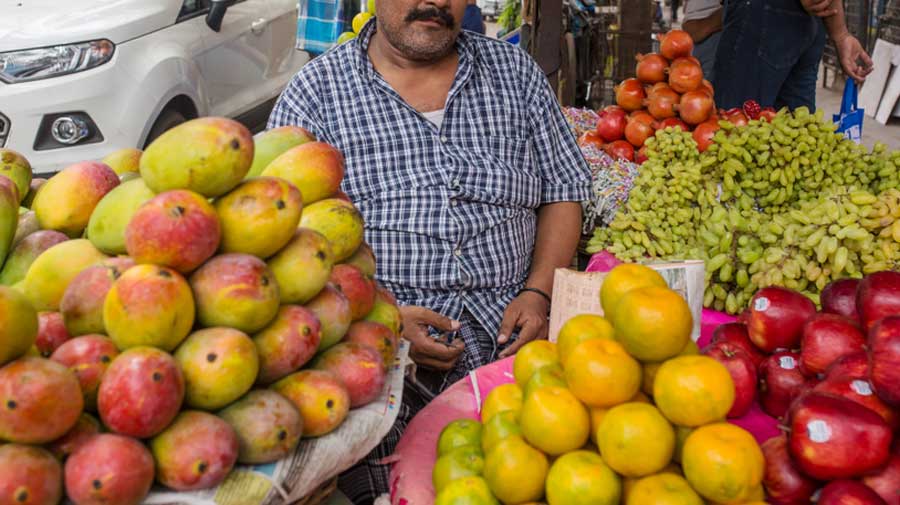India’s retail inflation rose to 6.93 per cent in July on higher food prices, remaining above the RBI’s medium-term target for the 10th straight month, according to government data released on Thursday.
July’s figure was higher than the 6.23 per cent recorded in June.
Food prices soared because of supply-side disruptions caused by the coronavirus lockdown. They rose 9.62 per cent compared with a jump of 8.72 per cent in June.
The steady rise in coronavirus cases has disrupted the supply chain as lockdowns continue at regional levels.
Fearing a sharp rise in inflation, the RBI last week kept interest rates on hold, after reducing the repo rate by a total of 115 basis points since February. The RBI has set its medium term inflation target at 4 per cent.
The economy is expected to contract more than 4.5 per cent in the current fiscal year, but some analysts do not expect the central bank to cut rates further this year.
“Given the distortions in supply chains and transportation, I don’t expect a rate cut in the remaining part of 2020,” said Rupa Rege Nitsure, economist at L&T Financial Holdings.
M. Govinda Rao, chief economic adviser of Brickwork Ratings, said: “CPI inflation rose in July despite fewer supply-side constraints following the relaxation of lockdown. We expect food inflation to soften in the coming months with easing supply constraints and better monsoon so far. However, the core inflation may remain at elevated levels as the demand picks up, but capacity utilisation does not increase.”
Devendra Kumar Pant, chief economist, India Ratings said: “MPC will watch inflation trajectory very carefully before taking decisions on rate cuts.”
“The evolving trends suggest that the CPI inflation may remain appreciably above 6 per cent in August 2020, which would be the last inflation print available before the next MPC review. Accordingly, the likelihood that the MPC would persist with a pause in its October 2020 meeting has climbed sharply, with a final rate cut likely to be deferred to the December 2020 or February 2021 meeting,” Aditi Nayar, principal economist of ICRA, said.
Monsoon rains are expected to be 104 per cent of the long-term average in August and September, indicating bumper harvests and helping to alleviate some of the damage caused by the pandemic.
However, hopes rest on the monsoon spread which are expected to be 104 per cent of a long-term average in August and September, indicating bumper harvests and helping to alleviate some of the economic damage caused by the pandemic.
The government suspended the release of CPI inflation headline numbers for April and May due to insufficient data during the lockdown.
The RBI kept interest rates on hold last week after reducing the repo rate by a total of 115 basis points since February - despite a recent rise in retail consumer prices - but said it would ensure inflation remains within target.
It is for the second consecutive month that the retail inflation has been above the RBI's comfort level. The government has mandated the central bank to restrict the inflation at 4 percent (+, - 2 per cent). The central bank mainly factors in retail inflation while arriving at its bi-monthly monetary policy.











